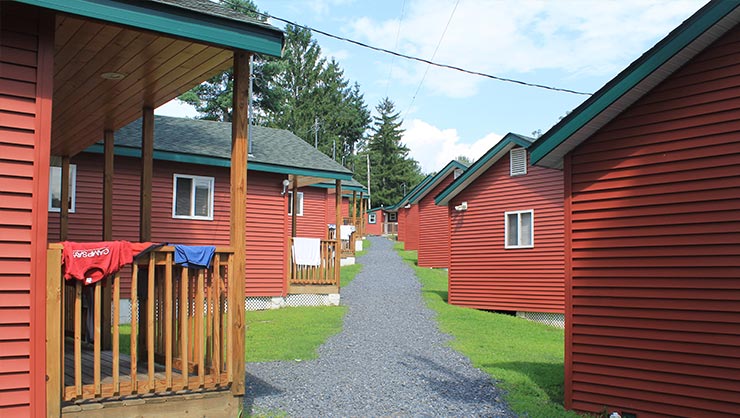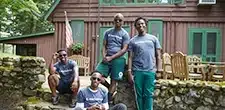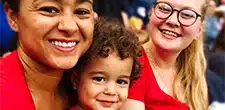As a camp counselor, you’ll never forget your first day on the job. The campers haven’t arrived yet, so everything’s quiet. (That will change quickly 😉) Walking across the grounds, you’re curious how long it’ll take you to memorize all the building locations. The dining hall is so clean and peaceful! (Just wait for Taco Tuesday!) The pool looks enormous! (It’ll soon look much smaller, packed with playful screaming kids!) Here and there you see logs and tables that will soon become ground zero for ghost stories, dad jokes, and s’mores. At the climbing wall, you can’t begin to guess how many young people will end their summer proud to have faced their fears and reach the top. What makes a camp experience great is the endless opportunity to create memories; a camp is a blank slate on which you can write an unforgettable summer.
When researching camps to spend your summer, these endless opportunities should excite you! But it’s also totally normal to feel a bit of anxiety – after all, what if you choose the wrong camp? You’ll want to ensure that you arrive at your first day on the job confident you’ve made the right choice. Don’t worry, we’re here to help! We’re going to tell you a bit more about different types of camps:
- Traditional Camps
- Religious Camps
- Camps for Adults/ Children with Special Needs
- Camps for Underprivileged Youth
We’ll also provide examples of these camps and, where possible, link to their Instagram, YouTube, or website so that you may get a better idea of their camp culture! (Speaking of which, don’t forget to follow our Instas: Camp USA and InterExchange 😌)

Photo courtesy of InterExchange
Traditional Camps
Traditional camps are the most common camp type found in the U.S. They are typically privately-owned and offer a variety of programs. The campers at these camps are between the ages of 7 and 15.
- These camps may be coed or single-gender.
- Campers live in cabins and stay at camp between one and eight weeks.
- Though there are many traditional camps in the U.S., each one is unique.
- No two camps are alike. Every camp has its own personality, history and culture.
Here are a few of the traditional camps that host international camp counselors through InterExchange Camp USA:
- Camp Lochearn
- Camp Kenmont and Kenwood
- Camp Menominee for Boys
- Camp Pontiac
- Seneca Lake
- Camp Chipinaw
Religious Camps
- Religious camps emphasize the value of their respective faiths through traditional camp activities.
- The level of religious involvement varies from camp to camp but staff and campers typically share similar ideologies.
- Religious camps are typically smaller than traditional camps and are not nearly as common.
- Some religious camps are overnight and coed, but many are day camps in which the campers do not live at camp.
- Many religious camps are owned and operated by a local church or youth organization.
- Christian summer camps are the most popular form of religious camps.
Here are a few of the religious camps that hire staff through InterExchange Camp USA:

Photo courtesy of InterExchange
Camps for Adults/ Children with Special Needs
- Special needs camps serve both children and adults who suffer from physical and/or mental disabilities.
- These camps offer traditional camp activities while promoting independence in daily living skills.
- The goal of these camps is to increase communication skills, improve self confidence, and teach appropriate social interaction.
- These camps are much smaller than other camp types and frequently the ratio of campers to staff is 1:1.
- Working at special needs camp can be very challenging but it can also be tremendously rewarding.
- Many special needs camps hire a large number of international staff.
The following are some examples of these camps:
Camps for Underprivileged Youth
Camps for underprivileged or at-risk youth offer the summer camp experience to children who could not afford it otherwise.
- These camps serve children who come from inner-city, urban backgrounds and/or low income families.
- The goal of these camps is to empower children to make positive life choices while offering access to a variety of activities in a fun, exciting, supportive environment.
- These camps may host campers with a history of behavioral problems or economically challenged backgrounds.
- Most are overnight, sleep-away camps located in beautiful outdoor settings and range in size.
- These camps can be challenging but represent the values and spirit of the summer camp experience. These camps can have a lasting impact on the children they serve.
Here are some examples of these camps:

Photo courtesy of InterExchange
No matter which camp you choose, you’re in for an amazing summer!


















